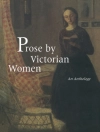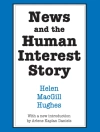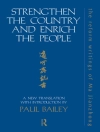Beckett and media provides the first sustained examination of the relationship between Beckett and media technologies. The book analyses the rich variety of technical objects, semiotic arrangements, communication processes and forms of data processing that Beckett’s work so uniquely engages with, as well as those that – in historically changing configurations – determine the continuing performance, the audience reception, and the scholarly study of this work.
Beckett and media draws on a variety of innovative theoretical approaches, such as media archaeology, in order to discuss Beckett’s intermedial oeuvre. As such, the book engages with Beckett as a media artist and examines the way his engagement with media technologies continues to speak to our cultural situation.
表中的内容
Introduction – Balazs Rapcsak and Mark Nixon
Part I Literature and theatre
1 In search of times gone by: Stimuli, signals and wireless telegraphy in Beckett’s novel Watt
Wolf Kittler
2 Beckett’s exhausted media
Armin Schäfer
3 Micro-drama / techno-trauma: Between theatre as cultural form and true media theatre
Wolfgang Ernst
4 Electrifying theatre: Beckett ’ s media mysticism in and beyond Rough for Theatre II
Balazs Rapcsak
5 Beckett, the proscenium, media
Martin Harries
Part II Screens and airwaves
6 Beckett ’ s intermedial bodies: Remediating theatre through radio
Pim Verhulst
7 Angles of immunity: Beckett’s Film
Philipp Schweighauser
8 Beckett’s affective telepoetics
Ulrika Maude
9 Understanding Quad
Julian Murphet
10 Black screens: Beckett and television technologies
Jonathan Bignell
Part III Digital Beckett
11 Directing Play in digital culture
Nicholas Johnson
12 Editing Beckett in digital media: Towards a digital Complete Works Edition
Dirk Van Hulle
Index
关于作者
Balazs Rapcsak is a doctoral candidate in Anglophone Literary and Cultural Studies at the University of Basel Mark Nixon is Associate Professor in Modern Literature at the University of Reading Philipp Schweighauser is Professor of North American and General Literature at the University of Basel












